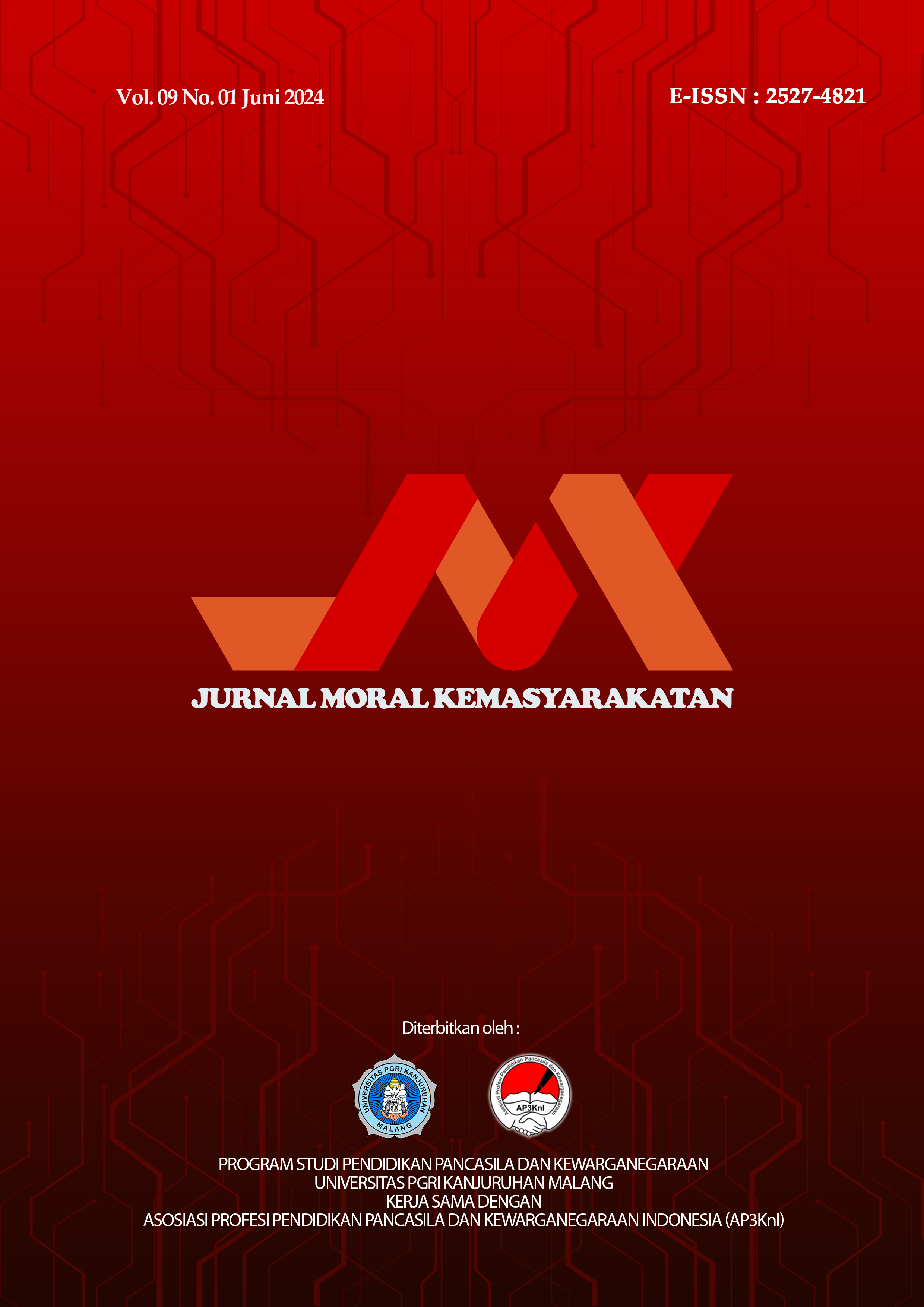Abstract
Tujuan penelitian ini adalah untuk mengetahui pengaruh penerapan praktik etis terhadap kepercayaan pelanggan serta bagaimana dampaknya terhadap pertumbuhan usaha berkelanjutan. Pertumbuhan bisnis digital dan penggunaan media sosial di kalangan pelaku Usaha Mikro, Kecil dan Menengah (UMKM) memiliki peluang besar untuk menjangkau konsumen lebih luas. Namun praktik tidak etis dapat merusak kepercayaan konsumen sehingga menghambat pertumbuhan bisnis. Melalui pendekatan kuantitatif, penelitian ini mengidentifikasi pengaruh penerapan praktik etis dalam bisnis serta rekomendasi praktik bagi UMKM untuk menumbuhkan kepercayaan konsumen dalam mendorong keberlanjutan bisnis. Hasil penelitian menunjukkan bahwa tidak ada pengaruh yang signifikan antara kepercayaan konsumen dengan keberlanjutan usaha. Adapun pengaruh kepercayaan konsumen terhadap keberlanjutan usaha adalah 0.161 yang menunjukan tingkat pengaruhnya sangat kecil. Sebaliknya, perilaku etis memiliki pengaruh yang signifikan terhadap kepercayaan konsumen. Besarnya pengaruh perilaku etis terhadap kepercayaan konsumen adalah -0.29. Hal ini menunjukkan adanya sifat hubungannya negatif, artinya semakin tidak etis perilaku yang dipraktekkan oleh pelaku usaha dapat menurunkan kepercayaan konsumen. Hal yang dapat disimpulkan bahwa perilaku etis merupakan aspek yang sangat penting dalam meningkatkan kepercayaan konsumen demi keberlanjutan usaha di sektor UMKM.
References
Branko, M., Drago, C., & Zoran, S. (2015). Role of Business Ethics in Management of Human Resources. Ekonomika, 61(1), 85-96.
Carter, C. R., & Rogers, D. S. (2008). Business Sustainability Refers to Managing Business Processes in A Way That Is Environmentally Friendly, Socially Responsible, and Economically Viable. Journal of Operations Management, 26(5), 459-467. https://doi.org/10.1016/j.jom.2007.06.002
Christensen, L. T., & Cornelissen, J. (2015). Organizational transparency as myth and metaphor. European Journal of Social Theory, 18(2), 132-149. https://doi.org/10.1177/1368431014555256
Chun, J. S., Shin, Y., Choi, J. N., & Kim, M. S. (2013). How does corporate ethics contribute to firm financial performance? The mediating role of collective organizational commitment and organizational citizenship behavior. Journal of Management, 39(4), 853-877. https://doi.org/10.1177/0149206311419665
Dyllick, T., & Hockerts, K. (2002). Business sustainability is the capacity of a company to operate in the long term by minimizing negative impacts on the environment and society. Business Strategy and the Environment, 11(2), 130-141. https://doi.org/10.1002/bse.323
Diffen. (2020). Ethics vs. Morals. Retrieved January 1, 2020, from https://www.diffen.com/difference/Ethics_vs_Morals
Elkington, J. (1997). Cannibals with forks: The triple bottom line of 21st century business. Oxford: Capstone Publishing.
Gefen, D. (2000). Consumer trust: The belief of truthfulness and honesty of the actions of the other party in a business transaction. MIS Quarterly, 24(1), 27-48. https://doi.org/10.2307/3250981
Johnson, K. (2019). Data privacy and consumer trust in online marketing. International Journal of Marketing Studies, 11(1), 45-60. https://doi.org/10.5539/ijms.v11n1p45
Nguyen, A., & Parker, D. (2020). Social media marketing ethics: Understanding consumer trust. Journal of Digital Marketing, 7(2), 102-119. https://doi.org/10.1080/21579316.2020.1761231
McFarlane, D. A. (2013). The Importance of Business Ethics to Small Ventures. Entrepreneurship and Innovation Management Journal, 1(1), 50-59.
McKnight, D. H., & Chervany, N. L. (2001). Trust is the willingness to rely on a transaction partner who is believed to have competence, benevolence, and integrity. Information Systems Research, 12(3), 334-359. https://doi.org/10.1287/isre.12.3.334.9703
Mena, L. J., et al. (2024). Sustainable digital transformation for SMEs: Framework and case study. Sustainability.
Morgan, R. M., & Hunt, S. D. (1994). Consumer trust: A strong belief held by consumers that the supplier or producer can be relied upon and acts with integrity. Journal of Marketing, 58(3), 20-38. https://doi.org/10.1177/002224299405800302
Oliver, R. W. (2004). What is transparency? New York: McGraw-Hill.
Rousseau, D. M., et al. (1998). Trust is a psychological state comprising the intention to accept vulnerability based upon positive expectations of the intentions or behavior of another. Academy of Management Review, 23(3), 393-404. https://doi.org/10.5465/amr.1998.926617
Smith, J. (2020). Ethical issues in digital marketing: A practical perspective. Journal of Business Ethics, 165(2), 123-138. https://doi.org/10.1007/s10551-018-4051-4
Schauster, E., & Neill, M. (2017). Ethical challenges in the digital age: The impacts on trust and consumer behavior. Journal of Business Ethics.
Twomey, D. P., Jennings, M. M., & Greene, S. M. (2016). Anderson’s Business Law and the Legal Environment, Comprehensive Volume. Mason, OH: Cengage Learning.
White, S., & Boatwright, B. (2020). Data Privacy and Security: Rebuilding Consumer Trust through Ethical Practices. Data Protection Leader.
Jurnal Moral Kemasyarakatan memungkinkan pembaca untuk membaca, mengunduh, menyalin, mendistribusikan, mencetak, mencari, atau menautkan ke teks lengkap artikelnya dan memungkinkan pembaca menggunakannya untuk tujuan lain yang sah menurut hukum. Jurnal memegang hak cipta. Setelah artikel diterbitkan, hak cipta ditransfer dari penulis ke penerbit jurnal.

Karya ini dilisensikan di bawah Creative Commons Attribution-ShareAlike 4.0 International License .

